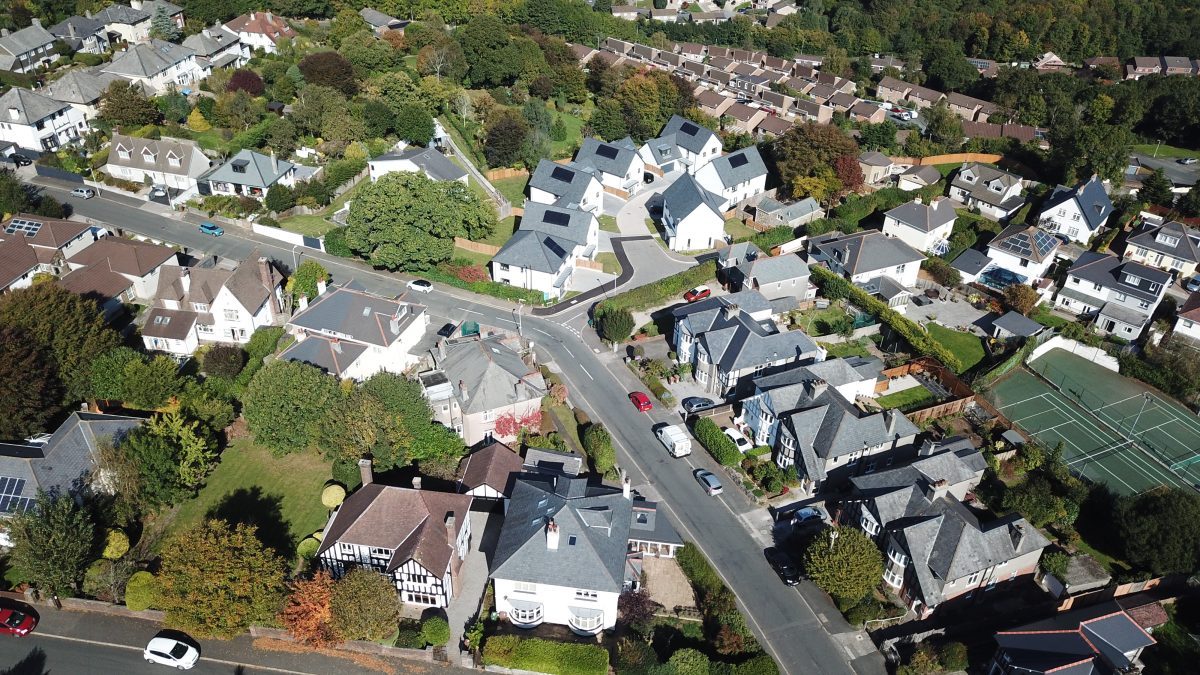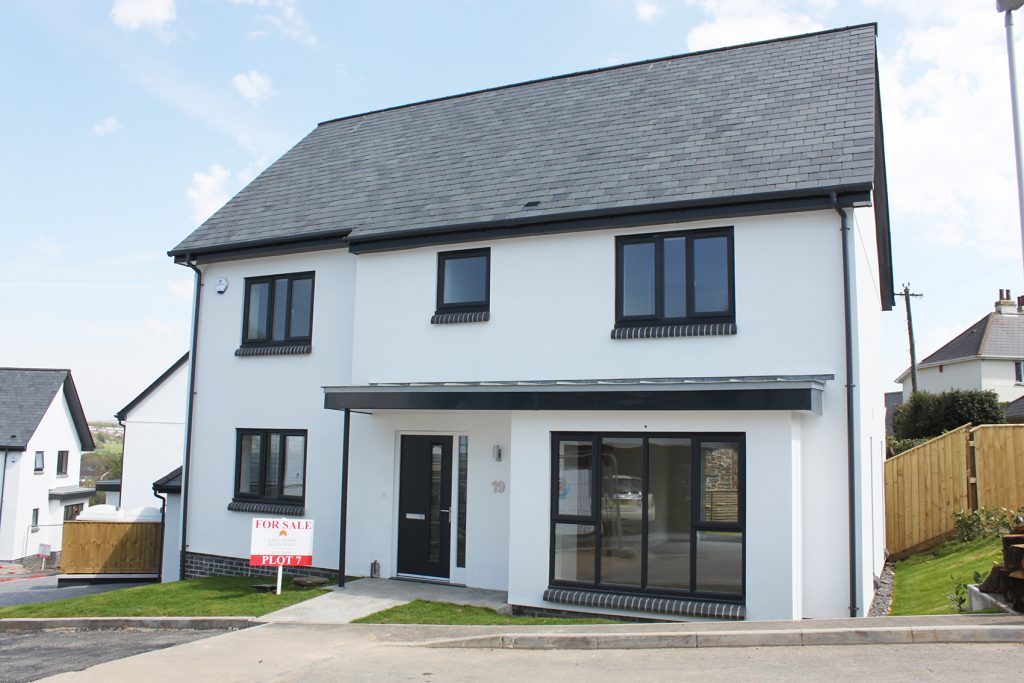Buying a House Amidst the Uncertainty of Brexit

Exclusive Interview with Peter Andre
29th January 2019
Ocean City Powerchair Football Club
5th February 2019Continue scrolling to read the blog post below, or view it in our online magazine here (Pages 12-18):
With Brexit just around the corner, many of us are sat wondering the type of effect this will have on the housing market. Whether you’re a first-time buyer, or a homeowner looking to sell their home and move on, this can add even more uncertainty to an already confusing time in your life.
The truth is none of us has a crystal ball so we cannot predict the exact future post-Brexit – in this article, together with the advice of some of the industry’s leading professionals, we are going, to sum up the whirlwind of information out there and offer some tips and advice when it comes to being a buyer or seller in the current housing market.
Research recently released by financial services provider – One Family – suggested that 55% of would-be first time buyers are delaying their purchase due to the political uncertainty surrounding Brexit.
According to the Financial Times, in areas where prices are falling, householders are also waiting to see the outcome of March 29th, rather than commit to anything now.
The research, officially released on the 8th of January also showed, however, that 1 in 5 first time buyers will proceed to buy a property before Brexit – with 29% citing they did not mind losing money on their ideal home.
Current homeowners have remortgaged loans to the value of £9.2bn, which is the highest monthly total since November 2008. They are taking advantage of a competitive market and are locking in attractive deals now.
The uncertainty of Brexit is keeping mortgage rates low, which means homeownership is the most cost-effective it’s been in years.
This research shows that both first-time buyers and homeowners are pretty 50/50 when it comes to securing a property during Brexit – so what now?
CURRENT HOUSING MARKET
First, let’s take a look at the current housing market. The uncertainty that is Brexit is keeping mortgage rates low – which means homeownership is the most cost-effective it’s been in recent years.
Sharron Sandey from SWLaw – a Solicitors and Financial Advisors firm based in Ivybridge – explain the drop in prices:
“Lending rates are down for the most part as people wait to see if property prices will fall. Nobody wants to buy a new home and see it fall in value in the first year. Current rates are competitive and are expected to become more so over the next calendar year for regulated and non-regulated loans as lenders try to make up for slow lending in the first quarter. This is a great result for borrowers that can take advantage of the changes.”
These low-interest rates are also appealing to first time buyers and household owners who have secured great mortgage rates are locking them in using five or more year fixed-rate deals.
According to Curwins – a Financial and Mortgage Advisors based in Plymouth:
“In the short term we don’t envisage mortgage interest rates changing very much up or down. The fact is that mortgage lenders still have an appetite to lend money and the uncertainty surrounding what will happen this year means the Bank of England will be very wary about increasing interest rates. However it might be a good time to consider fixing mortgage payments now as rates are historically low.”
The weakened currency could also make UK property look more attractive to overseas buyers – so any interest in securing a property could come from buyers outside of Britain.
According to Rightmove, the window of maximum buyer negotiating opportunity starts to close from Boxing Day onwards, as more buyers become active in the market. This – coupled with the fact that interest rates are at an all-time low – means that perhaps it would be a wise move to start the purchasing process now if you have a substantial amount available for a deposit.
This will enable you to get maximum exposure to the surge in interest from people who make it their resolution to move in the New Year.
Mortgage 4 Plymouth – a Mortgage Advisors Company based in Plymouth – say that first time buyers are still very active in the market place:
“Rates are still very low, so buying now will secure a low rate. Due to the lack of supply of housing the market is steady.”
The average amount needed for a deposit is £43,000. When you have been saving for years to buy your first home – it can be daunting to think of Brexit as yet another stumbling block to overcome.
Industry professionals are advising both first-time buyers and current homeowners to be clear on whether they are purchasing a home to live in or a property as part of an investment. Because if you plan on staying in your property for the foreseeable future, the whirlwind that is Brexit shouldn’t be at the top of your worry list!
Bright Solicitors – an award winning law firm based in Plymouth – say:
“With regard to uncertainty, you can never be certain of what the property market will do in any economy. Property speculation is a fascination of British culture and the risks surrounding this type of investment never seems to come to a complete halt – even in the deepest of a recession the housing market still move, albeit a bit more slowly.”
Recent price drops in asking prices for homes means that it’s becoming more of a buyers’ market, so you might be able to get a good deal.
The average price of a UK home dropped by 3.2% between October and December last year, with the asking prices for homes being nearly £10,000 lower than they were in October. This is especially good for people on lower incomes who are looking to buy a home, and also for those looking to add to an existing property portfolio.
Maitlands – an Estate Agent based in Plymouth – explained how they think the next few months are going to be interesting:
“Wouldn’t it be great as a first-time buyer if the market were to collapse and you can go in and get a property at the lowest price. The impact of Brexit is unlikely to be instant, but let’s just say the market over the next 18 months dropped 10% – if you’re living in rented accommodation costing you £700 a month, that is £12,600 you have effectively thrown away. Had you bought a house now with Help to Buy and a repayment mortgage on a property, you will immediately start to pay off the mortgage, and the sooner you do that the sooner it’s paid off.”
The good news is a number of providers have taken into consideration the current housing market and are now offering specialist mortgage options – something that anyone looking to buy a new property can certainly take advantage of.
WAYS TO GET ON THE PROPERTY LADDER
If you want to move house but cannot quite afford the deposit, the governments Help to Buy scheme could make a big difference.
Giving thousands of people a foot onto or up the property ladder, boosting the housing market, shifting new build homes and helping the wider economy are some of the reasons that the Help To Buy Scheme was introduced and it is available until 2020.
 The principal seems simple on the surface: you still need to save for an initial deposit, but with a Help to Buy Scheme, this is set at a more manageable 5%. Another main selling point is that you do not pay any interest on your loan in the first 5 years.
The principal seems simple on the surface: you still need to save for an initial deposit, but with a Help to Buy Scheme, this is set at a more manageable 5%. Another main selling point is that you do not pay any interest on your loan in the first 5 years.
Maitlands say that:
“If you are looking to buy a new home, a lot will depend on your own personal situation. One of the major advantages of buying a new home is that you can get Help To Buy. It could mean that rather than looking at two beds, you could afford to jump to a three bed in your new home; or if you were looking at apartments, you may be able to afford a house. Help To Buy is only going to be available for a limited time, so this is something that needs to be taken into consideration when looking at how soon to buy.”
However, there are some limitations to carefully consider. Although you will benefit from 5 years without interest, after this time the rate of interest applied to your loan will increase each year. While you will only pay 1.75% in your sixth year, each year following, your loan fee will increase by 1% plus any RPI increase added on top. You are also limited to only new build properties.
There are many pros and cons of ‘A help to buy mortgage’ scheme, and if this is an opportunity you’re interested in we advise booking in with a local mortgage advisor.
Leander Developments offer help and advice on the Help To Buy Scheme for anyone looking to use it. They explain that:
“Even if Brexit slowed or caused a slump to the housing market, the two overarching reasons why the Help To Buy Scheme is so relevant will remain true; the gap between pay and the housing market makes accessibility onto the property ladder difficult for many without some assistance, and property is a solid, long-term investment.”
Deposits can be a bit daunting when you first work out the figures. The average deposit in the UK currently sits at around 20%. If you were looking at a house worth £200,000 – you’d have to save up a whopping £40,000!
When considering your deposit, often the bigger the initial deposit, the lower the interest rates can be. A lower interest rate could mean your monthly repayments may be less or you could keep your payments slightly higher and have a reduced mortgage term.
It’s up to you to work out whether you wait and save for a bigger deposit – or get on the property ladder sooner and potentially have higher monthly mortgage repayments.
Help to Buy isn’t the only option that offers a 5% deposit. Many lenders offer first-time buyers a 95% mortgage, on any house that’s not a new build. There are also 100% mortgages – although they are not widely available due to the fact you have to have a family member acting as a guarantor.
Putting down a 5-10% deposit means you have access to fewer mortgage deals, and your interest rates may be slightly higher.
Bright Solicitors commented:
“We are still seeing a very strong demand for new build properties through the Help To Buy Scheme and other affordable schemes. The mortgage lenders are still offering very attractive rates for all home buyers and buy to let investors, so this enables the market to continue to move.”
The best way to find out what mortgage option would work best for your individual situation is to sit down with a trusted mortgage advisor for impartial, unbiased advice. They can help you unravel all the confusing terms and lingo, and guide you through the process once you are ready to do so.
If you are looking to sell your property remember the additional fees that come with selling a property after an offer has been accepted.
There are many companies that will be there to guide you through the process of buying a property. It’s just knowing the right places to go and understanding how they will help.
A Conveyancer will be required to handle all the legal and administrative work associated with transferring the ownership of land or buildings from one person to another.
All solicitors are qualified to undertake works of this kind; however, not all are experienced in it. It could, therefore, prove sensible to hire a solicitor who specialises in residential property transactions or a dedicated licensed Conveyancer who only works on cases of this kind.
Stamp Duty may also need to be considered. Stamp Duty is paid at different rates, depending on the purchase price. For example, someone buying a property for £245,000 would pay no tax on the value of the property up to £125,000 and 2% tax on the property value between £125,001 and £245,000.
The sooner you get on the property ladder, the better.
If you are looking to buy a new home, it goes without saying to make sure that you research the area that you are looking to live in and put in the right offer and make sure not to over-extend yourself – remember all the additional costs you’ll need to cover.
Remember that property is an investment, so when looking to get on the property ladder – whether it is for the first time, or you’re just looking for somewhere new, remember you are buying a home; so find a property you love, seek professional advice and buy it with the equity or money you have saved so hard for and spend many happy years living in it.





